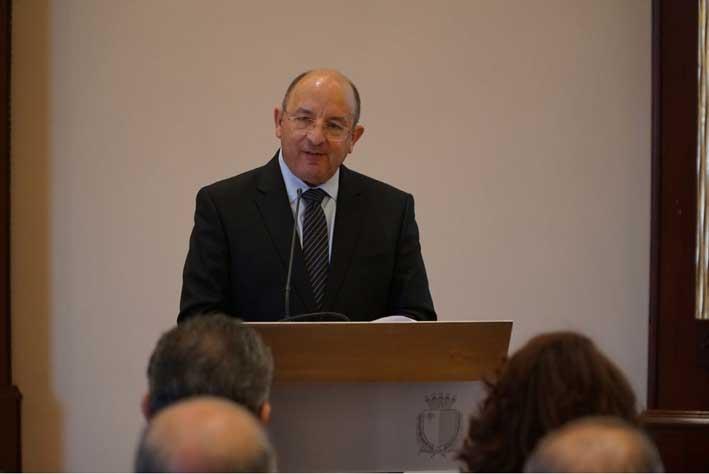The Human Rights and Integration Directorate within the Ministrey for EU Affairs and Equality has been awarded a two-million Euro project co-financed by the Asylum, Migration, and Integration Fund (AMIF), Equality Minister Helena Dalli said today.
The minister was addressing a conference called 'Security and Migrant Integration in a Changing Society'
The project goes by the name “Learning Exchanging Integrating” and will support the implementation of the national migrant integration strategy and action plan.
“This project will enable us to bring a number of integration officers on board whose job will be to directly meet with migrants interested in the services of the Integration Unit, and to direct them to Stage 1 of the ‘I Belong Programme’,” the minister said.
This includes the setting up of Maltese, English and cultural orientation classes, to conduct awareness campaigns, and to implement several other measures listed in the migrant integration action plan, the minister said.
She said that people can become insular and defensive about the volume of foreigners living and working amongst us. “This is not to say that we are not allowed to ask genuine questions and to show legitimate concern about matters related to immigration and its impact on our society. Perhaps we have failed to distinguish between healthy, democratic debate based on respect for fundamental rights, as opposed to a rant against the ‘foreigner’ that serves no-one. But it is true, isn’t it, that we do get insular and defensive? And the risk we run then is to take the slippery slope from words to action and take matters into our own hands. It is also true that we have pockets of foreign-born residents who have either not understood the workings of our society, or else, who actually seem to thrive on trouble. In both cases we suddenly have a problem of security, amplified by the online echo chamber, where hate speech and fake news are so prevalent. This is why ‘integration as belonging’ makes such sense to where we are today, because the problems we are facing stem fundamentally from an alienation from the fact that we do best when we pull the at same rope, in the same direction.”
“In this regard, the Human Rights and Integration Directorate will be working hard to pass on this message through structures.”
“How do we educate and reinforce the sense of belonging? This starts at schools and in families, youth groups, sport, at the workplace, at the local level, and wherever communities take shape.”

Home Affairs Minister Michael Farrugia also spoke during the conference.
The minister described two scenarios leading to citizens from African nations migrating toward Europe. The first, he said, is a situation where there are conflicts between nations and within nations, with refugees searching for a place where they can live in peace.
The second includes the effects of global warming - causing droughts - and the lack of economic investment.”
He noted that while migration became an issue for most EU countries around four years ago, it has been an issue for Malta for around 10 years if not more.
He said that countries in the Schengen area are putting up walls for longer periods of time rather than for short periods. “We even heard suggestions to extend the possible period of walls for three years, which is unthinkable. The political scenario is changing in Europe, towards the extreme right. I am worried as the issue of xenophobia is on the rise.”
When someone recently spoke abut migrants in Malta, he was referring to foreigners not just illegal immigrants. This is worrying, because the first step in moving from the centre to the extreme right is when you try to create a difference between locals and foreigners, as though foreigners are second class citizens. My mother spent four weeks in hospital before passing away. Half the staff were foreign. Everyone watched over her and took care of her, providing the necessary care. We need foreigners to improve the economy, and to continue providing the necessary health services. We need to move towards integration, this is the way forward.”
He spoke of the need to build EU level structures to support African nations improve their economy.
He said that the Agency for the Welfare of Asylum Seekers (AWAS). The function of the agency is the implementation of national legislation and policy concerning the welfare of refugees. Awas manages reception facilities, provides information programmes enhancing the chances for welfare and education. For the migrant integration strategy to be successful, we had to determine needs of different migrants. People in need of protection more likely that others to have experienced traumatic events, such as persecutions, forced separation from family, factors that can have a serious impact on their mental health and can affect their capacity to learn and increase the chance of despondency or aggression including within their families. This reality needs to be taken into account in integration policy, and unless traumas are addressed, refugees might not be in a position to participate in an integration programme and might affect their ability to become active members in society.”
“A new psychosocial intervention multidisciplinary team will be recruited to address all psychological issues that prohibit them from fully integrating in society. It will have a multi-disciplinary team to offer counselling and therapeutic services, family and child therapeutic services etc. to asylum seekers in AWAS centres," Minister Farrugia said.